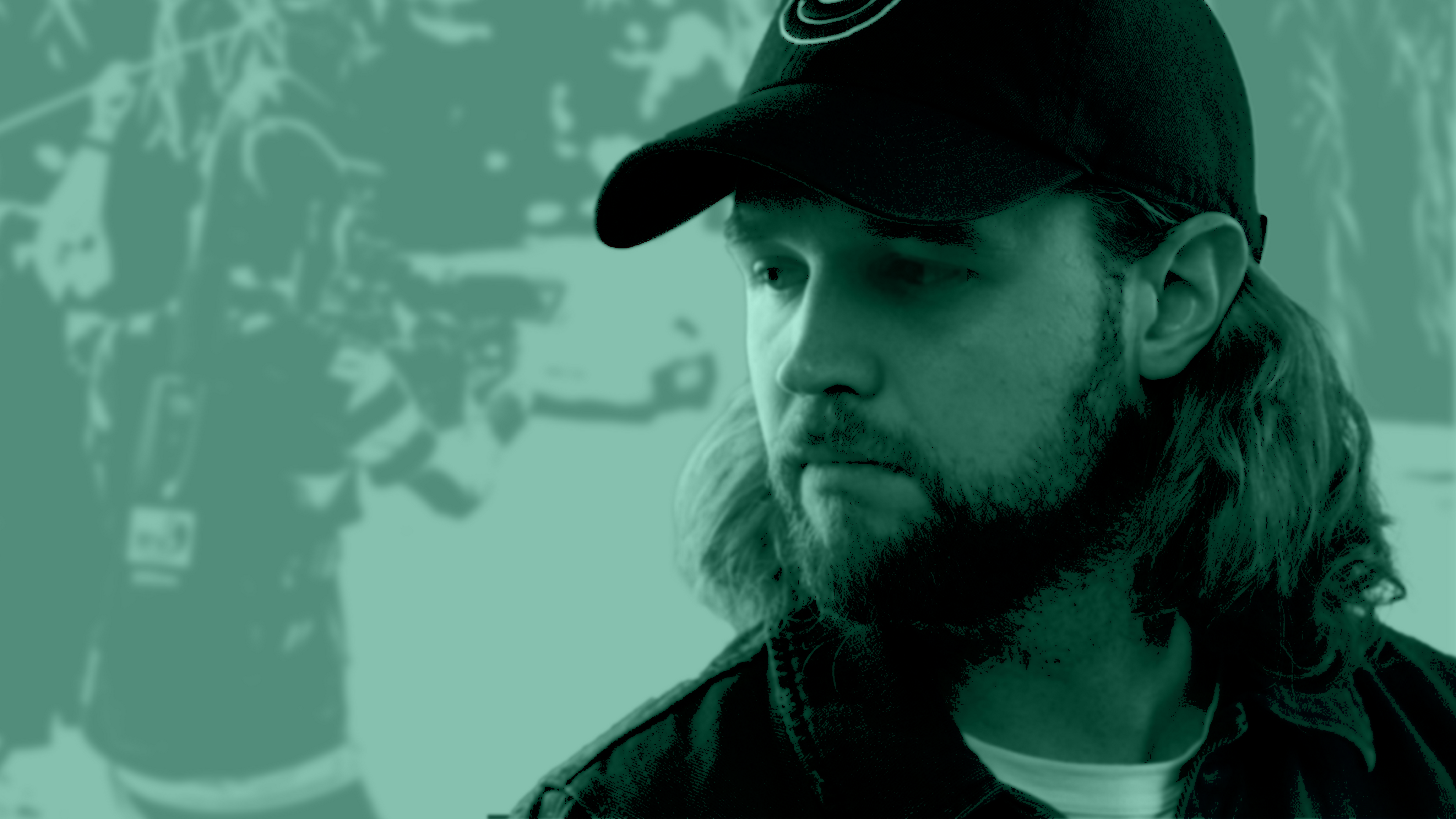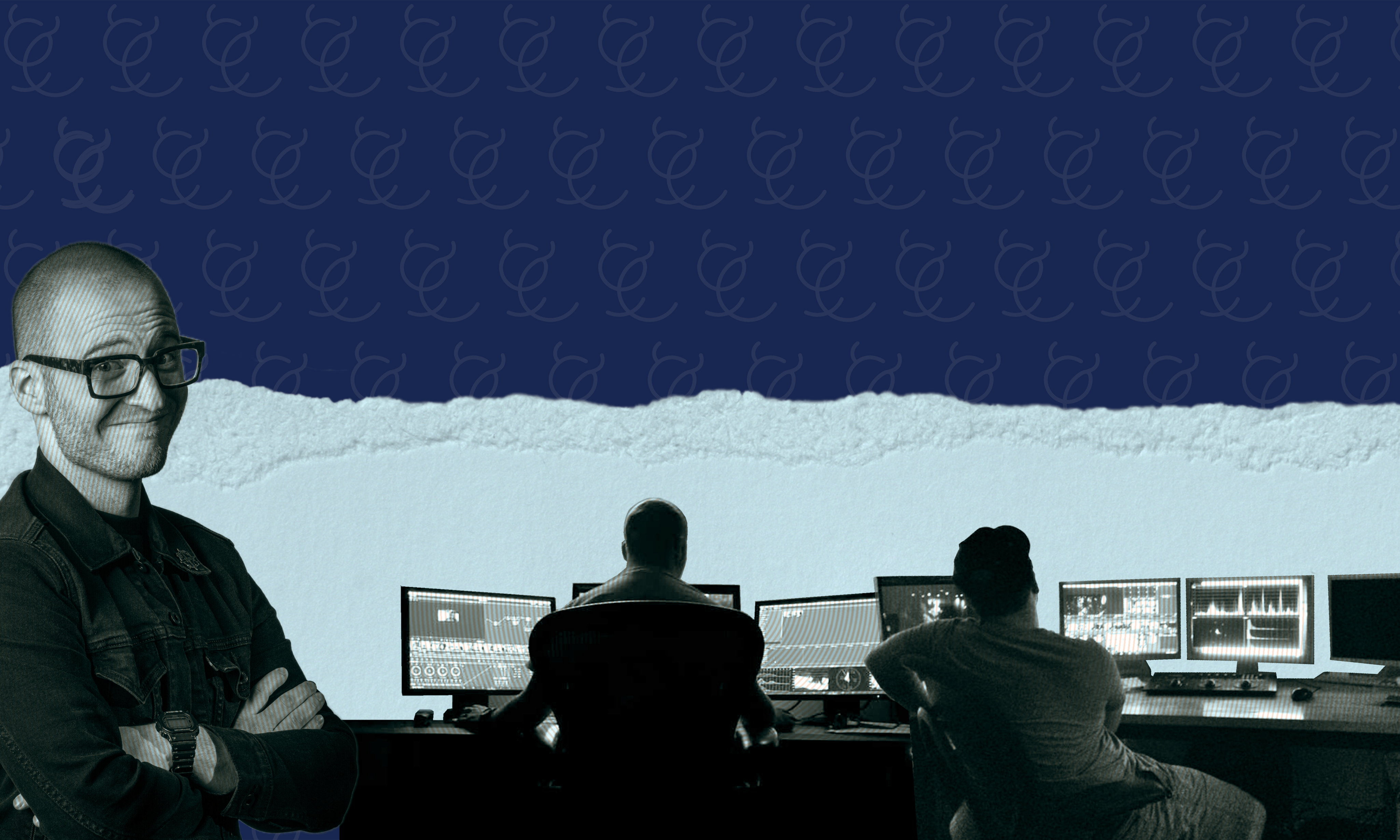Brian Lawes isn’t afraid of silence.
In his latest award-winning short film Lost Kings, Lawes uses sparse dialogue and tense pauses to hang the audience in suspense. Through studying other films and building upon his own experiences, Lawes continues to grow his skill set as a filmmaker and deliver an amazing short film that truly embodies the age-old axiom: ‘show, don't tell’.
We had the privilege of sitting down with Lawes and picking his brain over his film and his journey. Enjoy!
CA: So, what got you started in filmmaking?
BL: From a pretty young age, I was making videos with my cousins at Christmas time. Then as I got older, I really wanted to get into acting on camera and there weren’t a ton of opportunities. So, I started writing and directing and shooting my own stuff. I use that term pretty liberally because, at fourteen, we're not on a set doing anything extravagant, but just making things with friends. Then, that evolved through my late teens into my twenties where I started actually writing scripts, hiring crews, and making films that would go onto the festival circuit.
CA: Yeah. I think, when you’re making films at a young age, the thing that’s driving you is just the simple joy of creating - I don't know if that sounds pretentious at all. I feel like when you get older and encounter things like budgets and waiting a ton of time to make your next project… how do you personally keep that joy of creating alive in your work?
BL: Being completely transparent, I think I'm probably in an interesting phase right now where I'm trying to rediscover that in a lot of ways. The joy of filmmaking for me is in getting a lot of really talented people together and collaborating on the set. So, coming out of the pandemic, I'm trying to figure out how to reignite that in a lot of ways. The answer might truly be just writing something new and getting back on set because I feel like being with my collaborators is always kind of where I feel a huge boost of energy and inspiration.

Lost Kings is about a boy who, while searching for food, breaks into a neighborhood home. But when the homeowners return, he becomes trapped inside with those he's stealing from. | Brian Lawes
CA: In 2019, you were a finalist for our first ever Community Builders Grant. What was your experience like with our competition?
BL: The Community Builders Grant was a really special part of the filmmaking process. That January, I’d just adapted the short from a feature script that I’d written. Then, in the spring, I was applying to a variety of grants and the Community Builders Grant was the only grant that responded. It was a huge confidence boost for me that someone else saw value in the vision of the film. As a finalist, I prepared a verbal pitch of the film, which really challenged me to clarify and refine the vision of what I was making for an audience. When people in the audience talked to me afterward and there was so much interest in the film, it gave me a ton of belief in the idea and allowed me to be really bold in how I pursued making it. I also got to use a dream lens set with the gear credit I got as a Finalist.
CA: Yes! So, from Camera Ambassador, you rented a set of anamorphic lenses - the Kowas. I really loved how you use the widescreen aspect ratio to your advantage: in minimizing the negative space, you created a tighter and inevitably tenser frame. In what other ways did anamorphic lenses and that aspect ratio play a role in your storytelling?
BL: I think what you already talked about is true. With the anamorphics, we feel close to our subject while also seeing way more what's going on around them because of how the lenses optically capture the image. So, the lenses played especially well with the tight space of the home. After all, the geography of the film was such an important element in how tension was built into the story. The anamorphics allowed for a lot of really, really interesting ways to connect the space of the house and the characters because I could focus on my lead’s face in one room, but we were still wide enough to see what was going on a couple of layers deeper in the house. Also, they were vintage lenses. The anamorphics I used were an older set. With that just comes a ton of character and I always felt like this story wouldn't feel right if it was too clinical looking. So, I didn't want it to be so beautiful and clinical and sharp that the grittiness to the actual story itself was lost. That felt unique to the story - those lenses brought in characteristics that you're not gonna find with other sets.

"The anamorphics allowed for a lot of really, really interesting ways to connect the space of the house and the characters" | Brian Lawes
CA: Lost Kings is about a boy who, while searching for food, breaks into a neighborhood home. But when the homeowners return, he becomes trapped inside with those he's stealing from. What inspired you to tell this story?
BL: I made the short to build momentum for a longer feature that I’d already written and hope to make in the near future. The film wrestles with what to do with the socioeconomic divide that is going on around us. It's a question of what does it look like to live in a society where there are people that don't have money for food and there are people that have more than enough. I think that, sometimes, a problem like the distribution of wealth can be talked about in ways that are very dehumanizing - it can become kind of a faceless issue. So, my film reconnects people with the humanity behind it.
CA: Totally. The short film does such a great job of allowing us to empathize with the protagonist. It was super well done. I also have to ask, cause a lot of us at Camera Ambassador shoot 35mm - the first thing I noticed in Lost Kings was the film grain.
BL: Do you shoot, like, 35mm motion picture film?
CA: Oh gosh. I wish I had the money for that. We all shoot 35mm photography. So, the first thing I noticed was the grain. I was curious about how you pulled that off so beautifully with this project since I’m assuming y’all shot digitally–?
BL: Yeah. We shot with an Arri Alexa Mini. We had an amazing DP (Vincent Gonneville), Colorist (Martin Gaumond), and Gaffer (Jaden Scholes) - those three have a long-standing working relationship. The shooting-with-grain came from post-production with Martin. But, I think it's probably also fair to say that Vincent, my DP, probably had that in mind as he was shooting. I think Vincent even sat down with Martin to go over some of the colors, which allowed us to achieve the look.
CA: Gotcha. Yeah. That’s great that you're able to integrate post-production so seamlessly into your pre-production planning. It makes a lot of sense.
BL: I never want to add in elements if it feels too distracting or stylized, but the team had such nuance in how they added the grain - it just felt totally appropriate for the film.

On set of Lost Kings with Dash Melrose and DP Vincent Gonneville | Brian Lawes
CA: One thing that struck me so deeply about this film was that it was an absolute masterclass on the old cliché of ‘show, don't tell’. I think, in total, the protagonist says less than 10 lines throughout the whole film.
BL: I haven't counted, but you’re probably right.
CA: Yeah. And, the film’s like 16 minutes long! What was the experience like in creating such a visual piece? Did you have any challenges in having such few lines of dialogue?
BL: In my early filmmaking career, I wrote a lot more dialogue-heavy pieces. I'm still a huge fan of dialogue, but from online masterclasses (like with Ron Howard, Spike Lee, Shonda Rhimes), I learned as much as I could. Coupled with watching some really elevated, high-level Oscar-nominated short films, I started minimizing my own storytelling to visuals first and then adding in dialogue where it needs to be. Visuals were always really important to me, but I started to realize that a story's only really done when there's no more to take away. So, I've really been on a journey of condensing my storytelling to what's absolutely essential on the screen… and that brings you to Lost Kings. Interestingly enough, since I'm now at a place where it feels like I’m understanding the nuts and bolts of what it means to show a good story, I think now it's probably time to write more dialogue. So, I think in the next 10 years, I expect to move back into stories that use a little more dialogue, while not losing what I’ve learned.
CA: I appreciate how you're approaching dialogue as a tool - like, you can demonstrate restraint, but you don’t have to all the time. Suspense plays a key role throughout the film. I was wondering if you had any advice or like overarching philosophy when it came to your approach to directing tension?
BL: I looked at people that did it really well, which taught me a lot. I started to recognize that introducing too many cuts into a scene eliminated tension. In a way, sometimes a cut gives an audience a breather since it lets them out of a moment. Holding a shot does the opposite - it suspends them within the moment. In Lost Kings, there's a moment where our lead runs up the stairs and hides. In the same cut, you see two characters in the same space moving past each other and they don’t know that the other one's there on the other side of the wall. So, I was looking for moments to let the tension play out on-screen instead of trying to create tension with a cut. Some guiding principles were thinking about how could I eliminate the cuts and let the tension play out with blocking, sound design, and pacing. I used silence to amplify tension. Music, I think, would've actually given people a breather. So, you'd hear like neighborhood ambiance, the creaking of his foot on wooden floorboard… music can give resolution to the tension or remind people it's a movie. The silence, I think, continues the illusion that you're actually in the house with the boy.
CA: Yeah. There were so moments throughout the film where I almost wanted to scream at the editor. Although I hated the long takes, I appreciated the effect of them.
BL: I am the editor. So you're mad at me.
CA: Oh. Well, this is awkward. Sorry.
BL: Not at all! It actually makes me feel really good. Like I did my job. That’s what I wanted you to feel.
CA: I was on the edge of my seat! It was fantastic.

Brian Lawes speaking about his film Lost Kings at the Palm Springs International Film Festival | Palm Springs Short Fest
CA: Lost Kings has had an unbelievable festival run. The short won the Jury Awards for Best U.S. Narrative Short at the Santa Fe Independent Film Festival, Best Short at the Flickers' Rhode Island International Film Festival, and Short Film Honorable Mention at the Omaha Film Festival. The film was also in consideration for an Oscar in 2022. Congratulations.
BL: Thank you.
CA: So I know a lot of filmmakers, myself included, are still trying to figure out how to navigate post-production? I was wondering if you wouldn’t mind sharing your journey from the moment you leave the edit bay to what happens to the film afterward?
BL: Great question. So, from a birds-eye view, the best thing I've done to navigate what to do with the film after wrap has been to keep making other films. Every time I make a film and try to get it shared with festivals or the world at large, I learn a lot more for the next one. So, any success you see with Lost Kings was really built on the back of many lessons with past films. For other people still figuring it out, I would say: keep making your films and putting them through festivals. Go in person to those festivals when you can and ask other filmmakers how they're navigating the whole thing.
CA: Right. That makes sense.
BL: The only thing that would be damaging is if you don't share your work. I think that's where the learning comes from - it’s when you and an audience are watching it in festivals and you're talking to other people and getting to share your films.

Writer-Director Brian Lawes works with DP Vincent Gonneville on framing the next shot | Brian Lawes
CA: So, what are you working on in the future?
BL: I'm in post-production right now for a short documentary I shot. It was a really interesting experience cause I filmed it on Super 16. This is the first time I've ever done that and it was really outside my comfort zone. We all grew up in the digital filmmaking age, so we’re all a little bit spoiled. It really made me appreciate some of the incredible films that came before us. I mean, you can't playback clips!
CA: What’s the documentary about?
BL: It's about three different artists in the Black community and how their experiences and art are a part of the larger conversation of race in the United States. The documentary came after the murder of George Floyd in 2020. I was having some of these conversations with my friends, who are artists, about what role art had played in their processing of what was going on. Those conversations were really impactful to me. So, I wanted to capture the dialogue on film and share it in a larger way. I felt like I couldn't speak to those experiences in a narrative film in a way that felt authentic to me. To me, it felt like it was time to do something a little bit different and become a documentary filmmaker to elevate my friends’ voices and share what they had to say.
CA: That sounds awesome. How was filming?
BL: The production window was a lot longer than my other shorts since the documentary was shot on film and production spanned three different cities - Oklahoma City, Nashville, and New York City. I didn't initially think that it was gonna be a year-long process, but it’s actually perfect because the types of conversations that we're having are ones that shouldn’t be rushed anyways. Working with film very much mimics the conversation itself, in that it's something that needs time to develop - it shouldn’t be rushed or sanitized, but just kind of be lived in.
CA: That sounds awesome. Keep us posted on this project!
BL: Will do.
CA: I just wanted to thank you as both an employee of Camera Ambassador and also as a lifelong film student. I’m grateful for your time and for you relating your experiences and sharing some lessons you'd learned along the way!
BL: Oh, it was my pleasure. Thank you and the other folks at Camera Ambassador. Films are like a team sport and Camera Ambassador was like a really important team member for me in finding the voice of this film and making something special to share with the world. So, thank you for everything.

Brian Lawes is an American film director, writer, and producer. His films have played all across the world, earning multiple jury awards, with notable premieres at the Oscar Qualifying Palm Springs International ShortFest, HollyShorts Film Festival, and Indy Shorts International Film Festival.
Interested in renting a set of anamorphic lenses for your own project? Check out our rental page today!



